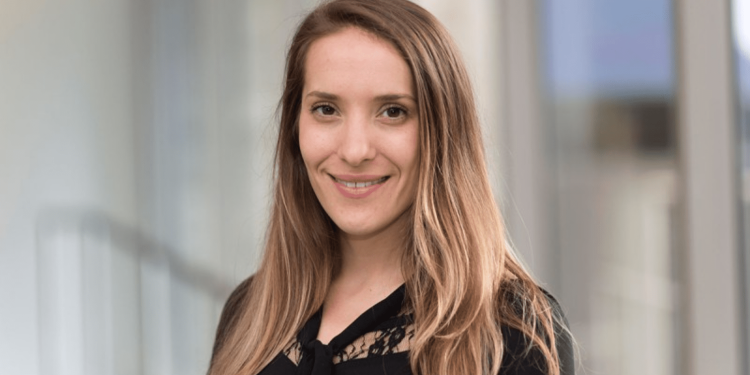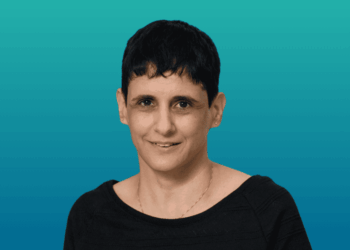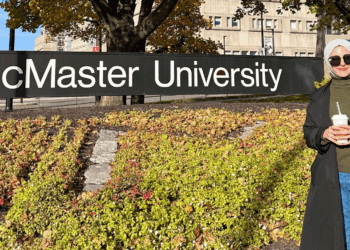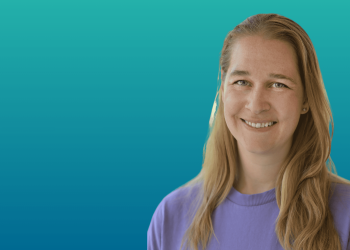Marta Kovatcheva, Group Leader at the AIRC Institute of Molecular Oncology in Italy, is the deserving 2025 recipient of the EACR-Mark Foundation-Pezcoller Foundation Rising Star Award. This award is open to EACR members with an unfunded Score ‘A’ cancer-related project from the previous year’s ERC Starting Grant calls. We recently had the pleasure of speaking with her about her journey in the cancer research community. She offers invaluable advice for early-career researchers and shares the key qualities she values in new recruits to her lab.
What is your current research about?
My lab right now is focused on this concept of “cell plasticity” – that cells can change or reprogram their identity. We can do this artificially, for example with ectopic transcription factor expression, but it also happens physiologically, for example in the context of injury and tissue repair. However, it turns out that plasticity contributes significantly to cancer therapy resistance and tumour relapse, and perhaps also to early transformation and tumorigenesis.
We’re trying to tackle the questions of what cell-intrinsic and cell-extrinsic factors can control cell plasticity, what consequences entering into these plastic states has for the cells and their function in their respective tissues, and whether we can rationally control these changes in cell identity, in order to control cancer. We’re also very interested in what happens as we age; it seems that cell identity starts to become a bit “fuzzy” and, paradoxically, we lose regenerative capacity, while our cancer risk grows exponentially.
I think what most excites me about our current research is the intersection it has have between really basic science – getting into detailed molecular mechanisms – and translational biomedical research, the possibility to actually apply our discoveries to novel therapeutic approaches. As a field, we’re also at a place right now where we have really cool tools and technologies to start understanding cell heterogeneity, context, and consequences in ways that simply was impossible, even just 5-10 years ago.
What’s the best thing about your work?
For me, I’d say this answer has two parts. The first is the scientific – the fact that we get to wake up every day and basically come and play. Ask questions that no one knows the answer to, explore new ideas and interests we have. Even more importantly, the answers we’re seeking can have real impact on people’s lives and health. Cancer is a devastating disease that leaves almost no one in our society unscathed, and the potential we have to alleviate some of that suffering through our work is really a privilege. That to me is amazing. Scientific research is, honestly, a very stressful and demanding job. At times it feels completely deflating and discouraging, and there are many things we need to improve about the system we work within. But regardless of all that, when I step back and think that, fundamentally, my job to ask questions I’m interested in, which can impact human health, I always remind myself that this truly is the coolest job in the world.
The other aspect is most certainly the people. In academic research, I really believe that we develop relationships with our peers that are unparalleled in any other industry I’ve seen. Perhaps it’s because we spend so many hours in the lab, perhaps it’s because we often relocate around the world and need to form connections, or perhaps it’s because science is such an emotionally demanding job that we share with our lab mates. But regardless, we make bonds and friendships that are immeasurable, and that makes coming to work feel less like work and more like you get a chance to hang out with friends and discuss interesting topics every day.
“It’s quite literally a childhood dream come true to be where I am”
When did you know you wanted to be a scientist and was your career path planned out in any way?
I was just reflecting on this recently for International Women & Girls in Science Day – I knew a long time ago. When I was a kid in elementary school, we had a unit where we had to write and “publish” storybooks, and my “About the Author” section reads, “I’m 9 years old & in 4th grade. My favorite colour is green & I love all animals. When I grow up, I want to be a scientific researcher.” So, for me it’s quite literally a childhood dream come true to be where I am.
Certainly, there was quite some planning involved in my career path. I am a natural planner and I think I always tried to be a few steps ahead of myself, whether it be self-studying for entrance exams to the schools I wanted to get into, applying to labs I was interested in one year in advance, or mapping out a timeline for when I needed what in my postdoctoral phase. It doesn’t always go according to plan, and quite honestly, there were many setbacks and many times when I felt completely crushed and like the dream was over. But in the end, I am really grateful that I was both a planner, and lucky enough to have things work out – because it would be dishonest to say luck doesn’t play a part – and I get a shot at the career I’ve dreamed of for so long.
What has been the biggest challenge in your career so far and how did you overcome it?
I would say the moments in my postdoc when I really felt like I would have to close the door on an academic career – times when it really seemed that time was running out, papers weren’t finished, papers were getting rejected. I overcame it with the same strategy I also use as a motto in the lab: take a multi-pronged approach, open many doors and follow the path that seems most promising, hope for the best but plan for the worst. Even in the most dismal-looking times, I did not abandon my goals. But, at the same time, I started exploring alternative career paths, having informational interviews with people, trying to figure out what I would want to do if I didn’t get the chance to start my own lab. And I think that exercise was really important, because it made me realise there are so many interesting things to do in the word, and that so many paths can lead to happiness. Besides being a planner, I also think I try to be an optimistic person, and I am sure I would have found happiness and fulfilment in an alternate career.
“One of the most important is passion and interest in science, both in general, and in some of the scientific questions or approaches specific to my lab”
What’s the best piece of career advice you were ever given?
I think this one comes from my PhD mentor, Andy Koff. When I started in his lab, I remember he came and put a stack of quarters on my desk and he said: “This is your PhD timeline. Every 3 months, take 1 quarter away. By the time the pile’s gone, you better be able to see the light at the end.” Honestly, in the moment, it was a bit terrifying. That pile looked so small, receded so quickly, and a PhD looked so huge and insurmountable. But it turns out, it was a really powerful visual metaphor. He didn’t mean it literally – he wasn’t going to kick me out of the lab if I wasn’t done by the time the quarters were gone. But it comes back to the planning, setting timelines for yourself, and to being a bit strategic and realistic with your career. I think you need to have a vision, and a way to keep yourself on track for that vision. It’s going to be a lot easier to get back on track if you realise you’ve strayed when you are halfway through the pile of quarters, versus at the very bottom.
What advice would you offer an early career scientist who wants to progress to your level?
I’ve already talked about the vision, the big picture, and the planning, so this one might sound a bit contradictory, but I think it’s also important to take it one step at time. I like to use this analogy because to me it’s really powerful; I hope I am using it with the right audience, because I have to admit, it’s quite nerdy. When I used to get a new math textbook in school, I would always flip to the last chapter. I don’t know why I liked to do it, because honestly it filled me with anxiety; the questions and equations there were so complex, it looked like a foreign language. I used to think “My goodness, I’ll never be advanced enough to solve this” and yet invariably, each year, I went chapter by chapter, and by the time we got to those last problem sets, they suddenly appeared printed in a language I could read. I think it’s important to take things in stride, enjoy each moment of your career (because you’ll have the same stage again), and give yourself the benefit of the doubt. Many things seem impossible, but if you take the right approaches to properly train & prepare yourself, by the time you arrive, you’ll surprise yourself with how capable you are.
What qualities do you look for when you’re hiring new scientists to your lab?
One of the most important is passion and interest in science, both in general, and in some of the scientific questions or approaches specific to my lab. It doesn’t have to be the thing you’ve always been interested in – we’re supposed to be constantly learning and growing and changing as scientists. But, I want to feel that you get enthusiastic when we discuss science, that you can find motivation in the questions we’re asking, that you’ll care enough to read about it by your own volition, and come up with ideas. The other quality is personability – going back to the idea of how strongly we bond in academia – I look for people that are kind, collaborative, and respectful of their lab mates, and who wouldn’t mind spending time together outside of the lab every once in a while.
How important is networking in science?
It is absolutely immense, and I don’t think this can be overstated. Firstly, it’s the source of new ideas and new collaborations. We can’t do everything alone, and with the current level of interdisciplinarity in biology, we probably can’t even do anything alone. The second is, it’s the most effective way to get people to know you, and to get excited about your ideas. This will help you so many times over, whether it’s getting recommendations for job opportunities, invitations to conferences, or even having someone read your name in a bit more friendly light when your manuscript ends up on their desk for review. Going back to the career advice, if I can add one more thing, it would be: go to conferences, and present at as many as you can.
What are you most looking forward to about the EACR 2025 Congress?
Going back to the point about networking, exactly that: socialising with scientists, hearing new ideas, getting feedback on our work. I really find conferences exhilarating and exciting, I always feel them leaving inspired and invigorated. I am certain that EACR 2025, with its magnitude, diversity of topics, and intersection of basic research and translational science, will be very powerful in activating those emotions for me.








